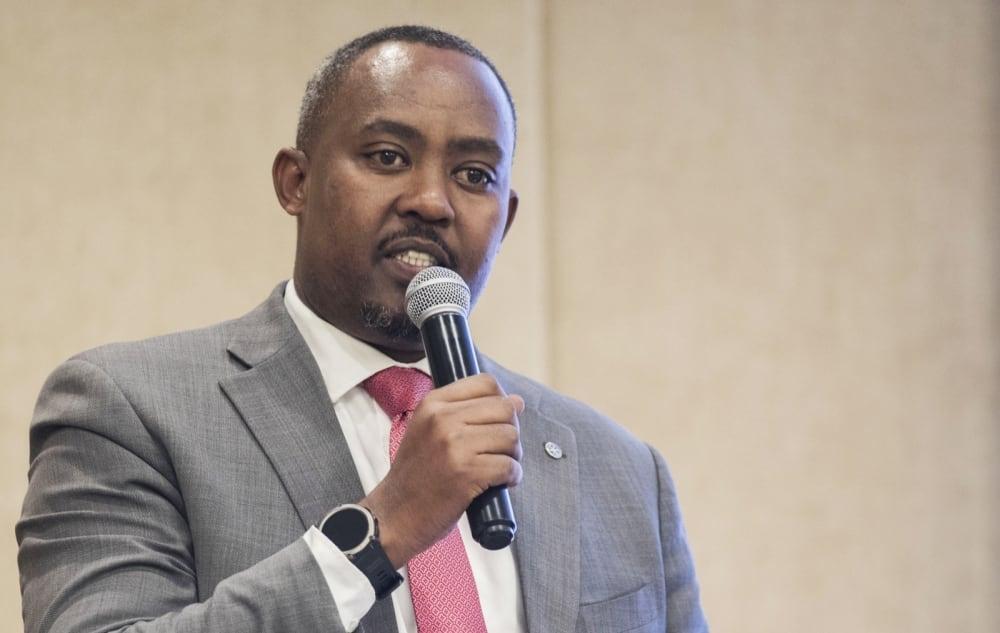Africa-Press – Rwanda. BK Group PLC recently announced a planned merger involving its subsidiary, BK General Insurance, and two units of the Rwanda Social Security Board (RSSB), Sonarwa General and Sonarwa Life Assurance, as the parties look to combine strengths into a new insurance group.
The move, according to the lender, aims to leverage an expanded distribution network to reach a wider customer base in the market.
While the transaction is still in its early stages, it is expected that a detailed arrangement of the merger will be tabled before shareholders at the upcoming annual general meeting to realise the development.
According to industry experts who spoke to The New Times, the proposed consolidation is a shot in the arm for innovation and growth in a sector that has previously been marred by challenges of low insurance penetration and market fragmentation.
With nearly 18 players on the market, insurance penetration remains at only 2.1 per cent, way below the global average of 7 per cent, reflecting an industry with untapped potential.
The players include three life insurers, 11 non-life insurers, and four special insurers, according to a 2024 annual report released by the National Bank of Rwanda (BNR).
“This is an interesting development and certainly presents opportunities for both institutions,” Andrew Kulayige, Chairperson of the Rwanda Association of Insurers (ASSAR), told The New Times in an exclusive interview.
He added, “We are closely monitoring the process. Generally, we can anticipate the introduction of more innovative products, especially leveraging BK Group’s existing digital platforms.”
Kulayige argued that digital transformation in insurance is heavily dependent on capacity.
“Without the right infrastructure and expertise, digitisation is challenging. But with the right tools, we can develop products that reach and benefit a broader segment of the population.”
Reacting to the possibility of more mergers in the sector, Kulayige, who also doubles as chief executive at Britam Insurance, said that “market players are watching closely, hoping to learn a thing or two to be able to benefit the masses.”
“There’s also the possibility of more mergers. We may see more consolidation in the sector, or individual companies might inject additional capital to stay competitive,” he noted, adding that the industry presents untapped potential given the low penetration rate.
Once realised, Kulayige predicted that product offerings will be mainly tech-driven, tailored to evolving consumer needs and digital trends.
But, he admitted, more interventions are urgently needed to address current market inefficiencies.
He pointed out the emergence of new players and models, including increased interest in life insurance, asset management-based insurance, and even telcos and mass-market channels entering the sector.
“We are also gradually seeing more young professionals enter the insurance sector, and human capital development is an important part of our long-term strategy,” Kulayige maintained.
Diversify products
For Derrick Kananura, General Manager at OLEA Rwanda, a leading local insurance broker, a unified firm can leverage economies of scale to invest in technology-driven solutions, such as digital platforms, facilitating easier access to insurance products for the populace.
He believes that insurance firms on the market need to invest heavily in research and development.
“I am not entirely confident that the proposed merger will directly drive upwards insurance penetration across the entire sector, until industry players invest more in products that are tailored to customer needs,” he observed.
“Our market is still dominated by traditional-like offerings, and unless this changes, mergers alone are unlikely to significantly impact penetration levels,” he added.
However, Kananura pointed out that once realised, the proposed merger would bring sound financial strength, a move that is timely and relevant for sector stability.
“The merger could also leverage BK Group’s broader service ecosystem to introduce new and innovative insurance products, which could, in turn, support greater market penetration.”
“We must begin to see insurance solutions that reflect evolving consumer lifestyles,” he added.
Kananura also reiterated the need to attract young professionals into the industry to integrate modern skills and fresh perspectives.
Bob Nkubara, senior analyst at SouthBridge Group, a Pan-African advisory and investment firm based in Kigali, echoed similar sentiments.
“I suppose this will reduce the operational costs for the proposed formed company, giving it a bigger cushion to give out more premiums because its assets will be huge because of the merger,” he said.
The industry in numbers
In the first half of 2024, profitability strengthened, with net profits growing by 18 percent to Rwf14.3 billion.
Return on assets and return on equity improved to 9 per cent and 20 per cent, respectively, mainly due to higher investment income.
However, the Central Bank warned that underwriting losses from high claims pose profitability risks.
In private insurance, the aggregated solvency ratio increased from 193 per cent in December 2017 to 296 per cent in December 2023.
For More News And Analysis About Rwanda Follow Africa-Press






